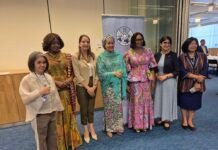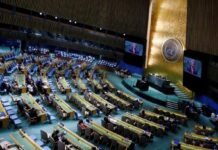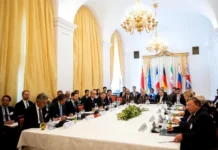Introduction
In the context of the United Nations (UN), which comprises a diverse membership of 193 countries, the need for effective communication is paramount. This linguistic diversity, representing various cultures, mandates the incorporation of multilingual services at UN conferences to ensure inclusivity and understanding among delegates. As the organization operates in six official languages—Arabic, Chinese, English, French, Russian, and Spanish—the availability of comprehensive multilingual services facilitates seamless dialogue and collaboration.
The role of these services extends beyond mere translation; they embody the UN’s commitment to fostering an environment where every delegate’s voice can be heard and understood. Multilingual services help to bridge the gap that language differences can create, promoting a more equitable and effective dialogue among member states. This accessibility is crucial for making informed decisions on global issues ranging from sustainable development to human rights, where a nuanced understanding of different perspectives is vital.
In recent years, the emphasis on enhancing service quality at UN conferences has come to the forefront. Members of the delegation increasingly expect high standards within conference management, perpetuated by technological advancements and growing interconnectivity. These expectations not only pertain to translation and interpretation but also encompass the overall effectiveness of communication strategies employed during conferences. With heightened awareness about the significance of protecting linguistic rights, multilingual services are seen as a necessity rather than a luxury. Consequently, UN agencies are exploring innovative approaches to elevate the quality of these services, ensuring that every conference can uphold the principles of equality and inclusivity.
Delegates Commend Secretariat Efforts and Address Liquidity Challenges
Delegates at the recent UN conference have expressed their appreciation for the continuous efforts made by the UN Secretariat to enhance the quality of conference proceedings. They recognized the Secretariat’s commitment to providing robust multilingual services, which are essential for effective communication among member states. This multifaceted approach not only respects the diverse linguistic backgrounds of delegates but also fosters a more inclusive environment conducive to dialogue and collaboration.
However, amidst these commendations, representatives have voiced significant concerns about the ongoing liquidity crisis, which severely affects the recruitment and retention of qualified personnel within language services. This crisis poses a challenge to ensuring that all delegates can engage effectively due to potential language barriers. As communication is the cornerstone of diplomacy, the ability to convey ideas in one’s preferred language is vital for ensuring that all voices are heard and valued at these high-stakes discussions.
One poignant example came from Uganda’s delegation, which emphasized the principle of sovereign equality among nations. They highlighted that the availability of diverse language representation is not merely a procedural necessity but a matter of ensuring that the perspectives and experiences of each nation are adequately captured and considered. The Ugandan representative strongly advocated for the UN to prioritize multilingual capacity building and support mechanisms to reinforce this urgent need for inclusivity.
This recognition of language services as a critical component of the UN’s operational framework calls for immediate attention from member states. The liquidity challenges faced by language services must be addressed to ensure that all delegates can participate fully and constructively in conferences. Doing so will enhance the overall quality of proceedings and uphold the principles of equality and inclusivity that are the hallmarks of the United Nations.
Innovative Approaches to Enhance Accessibility and Representation
Accessibility at UN conferences stands as a fundamental pillar in fostering inclusivity and ensuring diverse representation. To address the needs of persons with disabilities, several innovative approaches are being implemented. One significant measure involves the integration of sign language interpretation. This service not only facilitates effective communication but also underscores the importance of engaging individuals who are deaf or hard of hearing in critical discussions. By incorporating skilled sign language interpreters, UN conferences promote a more equitable platform for all attendees.
Furthermore, the coordination of assistive devices plays a crucial role in enhancing accessibility. These devices encompass various technologies tailored to support individuals with different types of disabilities. From hearing aids to screen readers, such tools are instrumental in helping participants navigate the conference environment effectively. The UN has made strides in ensuring that these devices are readily available, thus fostering an atmosphere where every participant can contribute meaningfully to discussions. The ongoing commitment to providing these essential resources demonstrates a forward-thinking approach to inclusivity.
In addition to physical accessibility, the digitalization of UN documents marks a pivotal advancement. By converting traditional print materials into accessible digital formats, the UN extends its reach to a broader audience. This initiative allows for the incorporation of features such as text-to-speech technology and adjustable font sizes, which cater to varying accessibility needs. Increased access to documents not only empowers individuals with disabilities but also promotes participation from regions that may have previously struggled with language barriers or limited access to resources.
Through these innovative measures, the United Nations is making significant progress towards enhancing accessibility at conferences. By prioritizing sign language services, assistive devices, and the digitalization of materials, the UN is fostering an environment that supports diverse participation and representation in its initiatives. This commitment to inclusivity signifies an acknowledgment that everyone deserves a voice in global discussions.
Looking Ahead: Recommendations and Future Directions
As we reflect on the discussions surrounding the enhancement of UN conference quality, it is crucial to consider the recommendations put forth by the advisory committee. These suggestions pave the way for future improvements, particularly in the realm of multilingual services, which are vital for ensuring that all participants can engage meaningfully. One primary recommendation emphasizes the sustained investment in language services. This investment not only aids in effective communication but also fosters inclusivity among diverse stakeholders, enhancing the overall effectiveness of conferences.
Moreover, the advisory committee has identified the need to adapt conference committee reports to better reflect the linguistic diversity of attendees. This involves a systematic review of existing reporting mechanisms, ensuring that they are responsive to the multilingual environment of UN sessions. Implementing these changes will require dedicated resources and commitment from member states to maintain high standards of translation and interpretation services.
An additional consideration is the strategic allocation of resources focused on effective multilingual services. Adequate training and development programs for interpreters and translators will be essential to maintain quality amidst increasing demands. It is recommended that the UN explores partnerships with academic institutions and language organizations to bolster the skill sets of language professionals involved in conference proceedings.
Finally, leveraging technology could also play a transformative role in enhancing multilingual services. Investing in advanced translation tools and platforms can increase efficiency and accessibility, minimizing language barriers during conferences. In conclusion, the path ahead requires a comprehensive approach that addresses the nuances of multilingual communication, ensuring that all voices are heard and respected in UN discussions. By prioritizing these recommendations and future directions, the quality of UN conferences can be significantly enhanced.





